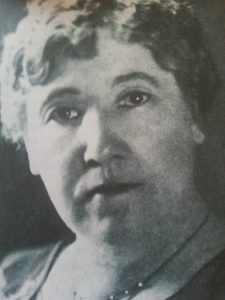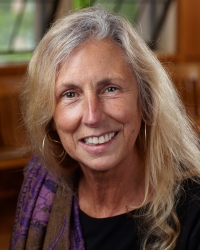In honor of Women’s History Month, we asked Lauren Kapalka Richerme, Assistant Professor of Music Education at Indiana University Jacobs School of Music, to profile two female innovators in the field of Music Education. Read below about Francis Elliot Clark and Patricia Shehan Campbell, two women who have had profound influence on the lives of children and the promotion of music as a key to educational success. This month’s blog posts are made possible by the Eloise Paul Women in Music Fund.
Women in Music Education History

Francis Elliott Clark
Francis Elliott Clark
While the vast majority of all presidents of the Music Educators National Conference (now the National Association for Music Education) have been men, Francis Elliott Clark held the honor of presiding over the group’s initial meeting in Keokuk, Iowa in 1907. Clark and the other leaders had initially planned a single meeting, but the insatiable questions about best teaching methods from the 104 music supervisors in attendance caused them to improvise a three-day program. This event was the first of what came to be annual gatherings of music supervisors and later also music educators—a hallmark of the music education profession that continues over 100 years later.
Born in Steuben County, Indiana in 1860, Clark was married at 14 and a widow by 20. Having only an 8th grade education, her love of learning and books enabled her to earn teacher certification, study voice, and eventually train as a music supervisor. After years of teaching high school choirs in Iowa, she became music supervisor for the city of Milwaukee. Clark favored “rote to note” instruction, meaning that students first experienced a specific song or aspect of making music without notation, and then a teacher introduced the appropriate musical symbols. Believing that ear training should begin in Kindergarten, Clark encouraged educators to have students respond vocally to musical roll calls.
Clark’s advocating for the educational possibilities of the phonograph is often considered her most significant contribution to the profession. Noticing a lack of records appropriate for children, she eventually developed and promoted educational resources for the Victor Talking Machine Company. In addition to fostering music appreciation through recordings ranging from folk songs to Beethoven symphonies, the phonograph enabled children the opportunity to develop their singing by mimicking the tone quality and phrasing of professional musicians. In a time period in which most Americans had never heard a symphonic work, through Clark’s efforts, children in rural schools throughout the nation gained access to classical music.

Patricia Shehan Campbell
Patricia Shehan Campbell
While Francis Elliott Clark assisted teachers in putting certain music into students’ heads, Patricia Shehan Campbell attempted to understand children’s natural music making. Through her groundbreaking research in the 1990s, Campbell detailed the musical activities of children in places ranging from school buses to toy stores to home environments. Her work revealed the diversity and complexity of children’s everyday musical endeavors, including how they altered known tunes through their play and games as well as created spontaneous musical utterances. Awarded the Senior Researcher Award in 2002, she became one of only a few women to earn the Society for Research in Music Education’s highest honor.
Currently teaching future and practicing music educators at the University of Washington in Seattle, Campbell previously taught K-12 choral music in the Cleveland area. She has a strong interest in using movement as a pedagogical technique and in children’s musical cultures throughout the world. While Clark promoted the possibilities of recordings, Campbell generally encourages children to get away from “canned music” by attending live music making by students, amateurs, and professionals.
However, like Clark, Campbell promotes recordings as a way of assisting schools and communities in accessing music otherwise unavailable to them. As current chair of the Board for Smithsonian Folkways, she develops and disseminates curricula associated with archived recordings of American and global music. More broadly, as president of the College Music Society from 2013-2015, Campbell worked on a report aimed at transforming undergraduate music instruction through increased emphasis on creativity, diversity, and integration across musical subsets.
Music education and life-long musical engagement ultimately need both live and recorded music, listening and moving, attending to Western classical traditions and the welcoming of creativity, hybrids, and diverse, global musical practices. Clark and Campbell continue to inspire new generations of music educators and music makers through their shared thoughtful openness to the musical and educational possibilities of their respective times and places.
L auren Kapalka Richerme is an Assistant Professor of Music Education at Indiana University Jacobs School of Music in Bloomington, Indiana. To learn more about her, visit her website here. And to learn more about the Music Education program at Indiana University Jacobs School of Music, go here.
auren Kapalka Richerme is an Assistant Professor of Music Education at Indiana University Jacobs School of Music in Bloomington, Indiana. To learn more about her, visit her website here. And to learn more about the Music Education program at Indiana University Jacobs School of Music, go here.
This month’s blog posts are made possible by the Eloise Paul Women in Music Fund.






Leave a Reply